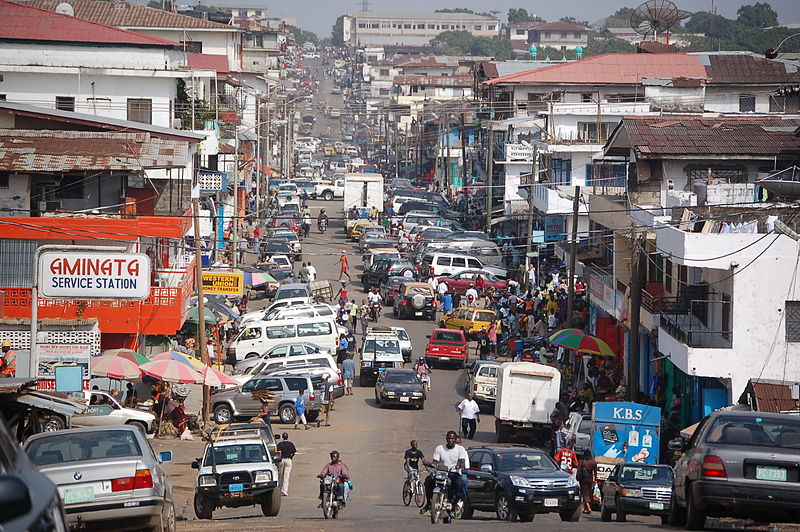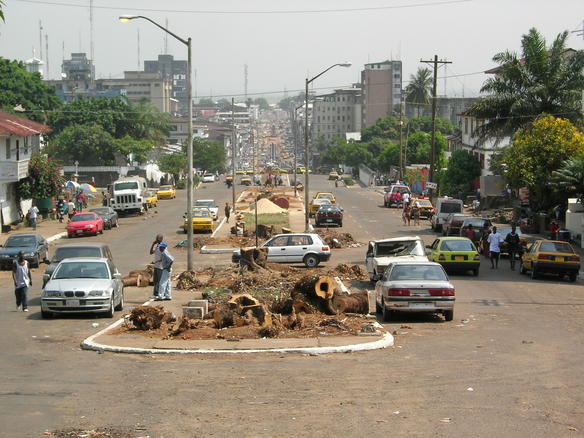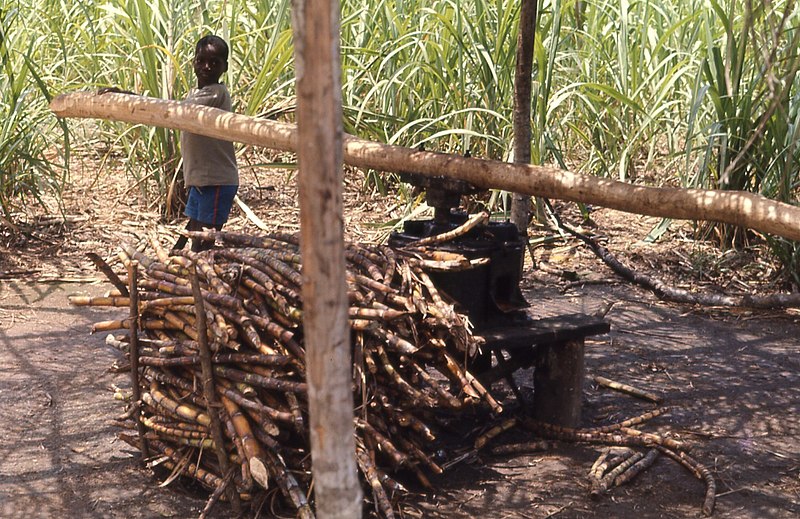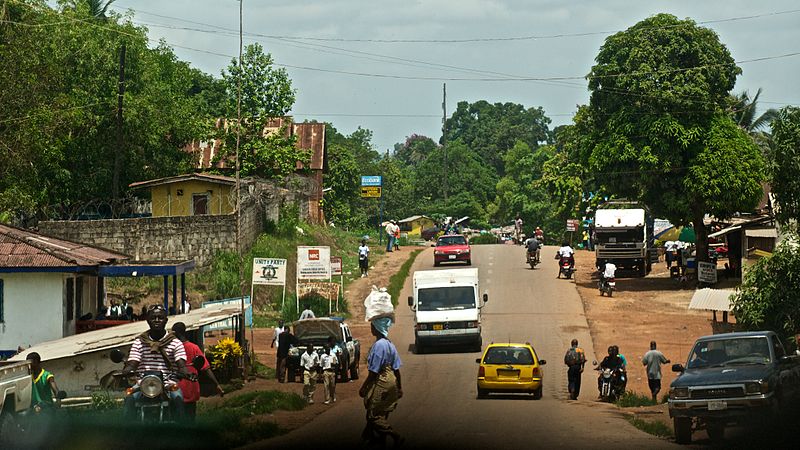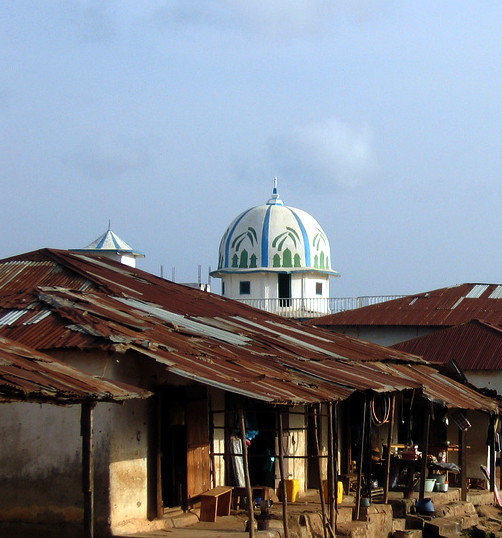Adopting from Liberia
Contents
Liberia Adoption Alert
Notice: Notice regarding fees charged for exit clearance (August 31, 2010)
The Department of State is aware of cases where adoptive parents have been asked to pay a fee for an exit clearance letter in Liberia. Americans should be extremely cautious about any requests for payments of fees associated with exit clearance letters. Liberia's Bureau of Immigration and Naturalization does not charge a fee for the exit clearance letter. Any requests for such fees should be immediately reported to the U.S. Embassy.
U.S. Embassy in Liberia
111 U.N. Drive Mamba Point Monrovia, Liberia Tel: +231-77-054-826 Fax: +231-77-010-370 Email: ConsularMonrovia@state.gov
The U.S. Government does not condone bribery or corruption of any kind.
Notice: Notice Concerning Adoption Processing In Liberia (April 26, 2010)
On January 26, 2009, the Government of Liberia suspended adoptions because of allegations of mismanagement and corruption in the adoption process. The U.S. Department of State cautions American citizens against filing an application to adopt a child from Liberia while the moratorium on adoption remains in effect. The U.S. Embassy remains in frequent contact with adoption officials, but there is no indication when the moratorium might be lifted.
Since the suspension went into effect, the Liberian Government has formed an Ad-hoc Central Adoption Authority to have oversight over adoptions and is working to pass adoption legislation focused on strengthening existing laws and preventing abuses of the system. The U.S. government strongly supports the Liberian Government's efforts to strengthen its adoption laws and regulations to provide greater transparency and safeguards for prospective adoptive children, their birth parent(s) and prospective adoptive parents.
The Government of Liberia has informed the U.S. Embassy that it will not process any adoption cases during the suspension, including those that were in progress before the suspension was announced, and that it will not permit adopted children depart Liberia. They have also indicated that no new adoption applications should be accepted by adoption service providers, no referrals of children to prospective adoptive parents made, and no adoption petitions filed with the Liberian court while the suspension is in effect. The Liberian Government has made no provisions for the grandfathering of cases under the existing laws. Therefore any case in which a full and final adoption had not been completed prior to January 26, 2009 is effectively on hold.
The U.S. Embassy in Monrovia has been informed by the Government of Liberia that it will issue exit clearances, on a case-by-case basis, to children whose full and final adoption had been completed prior to January 26, 2009 and approved by Liberia's Ad-hoc Central Adoption Authority. Prospective adoptive parents who believe their case might fall into this category should contact the Consular Section at adoptionsmonrovia@state.gov to discuss next steps in the visa process and any gaps in their adoption file. Additionally, the Government of Liberia is requiring that all adoptive parents appear personally for the exit clearance interview. Processing the visa and obtaining the exit clearance takes about a week of time, but adoptive parents are advised to purchase open-ended return tickets, as there is no guarantee as to how quickly the exit clearance can be obtained.
Prospective adoptive parents and adoption service providers are reminded that a consular officer is required, by law, to complete a For I-604 (determination of orphan status) before issuing a visa in all IR-3 and IR-4 adoption cases. In some cases, this may require only a conversation with the birth parent, but in others it may require a full field investigation, possibly lasting several weeks. Since verifying the parent-child relationships in Liberia is difficult, we also expect that in most cases where the child was relinquished by the birth parent, DNA testing will be recommended in order to establish a blood relationship between the adopted child and claimed birth parent(s).
Please continue to monitor adoption.state.gov for updated information.
Hague Convention Information
Liberia is not party to the Hague Convention on Protection of Children and Co-operation in Respect of Intercountry Adoption (Hague Adoption Convention). Therefore, when the Hague Adoption Convention entered into force for the United States on April 1, 2008, intercountry adoption processing for Liberia did not change.
Currently there is a moratorium on new adoptions and all approved adoptions must be approved by the ad-hoc adoption committee before the children may leave the country. Any prospective adoptive parent who is in the process of adopting from Liberia should contact the Consular Section of the U.S. Embassy in Liberia at the following e-mail address.
In July 2008, the Ministry of Justice and Ministry of Health and Social Welfare began carefully reviewing all adoption cases submitted to them for approval. This change occurred because the Government of Liberia noticed an increasing number of cases in which adoptive parents decided to terminate their parent/child relationship with Liberian adoptive children. The Liberian Parliament is considering a revised adoption law, which was proposed in November 2007. If enacted, the new law would provide additional safeguards to protect adoptive children, birth parents, and prospective adoptive parents.
Who Can Adopt
To bring an adopted child to United States from Liberia, you must be found eligible to adopt by the U.S. Government. The U.S. Government agency responsible for making this determination is the Department of Homeland Security, U.S. Citizenship and Immigration Services (USCIS). Learn more.
In addition to these U.S. requirements for prospective adoptive parents, Liberia also has the following eligibility requirements for prospective adoptive parents:
Residency
There are no residency requirements for intercountry adoptions in Liberia.
Age of Adopting Parents
There are no age requirements for intercountry adoptions in Liberia.
Marriage
There are no marriage requirements for intercountry adoptions in Liberia. If you are married, both parents must adopt the child.
Income
There are no income requirements for Liberian intercountry adoptions.
Other
N/A
Who Can Be Adopted
Liberia has specific requirements that a child must meet in order to be eligible for adoption. You cannot adopt a child in Liberia unless he or she meets the requirements outlined below.
The Consular Section of the U.S. Embassy thoroughly investigates each adoption case to verify that the child's orphan status is legitimate. Since these investigations can take a considerable amount of time, prospective adoptive parents should check with the Embassy to ensure that the investigation has been completed before making travel arrangements for the child to depart Liberia.
In addition to these requirements, a child must meet the definition of an orphan under U.S. law for you to bring him or her home back to the United States. Learn more about these U.S. requirements.
ELIGIBILITY REQUIREMENTS:
Relinquishment Requirements: In addition to a statement of relinquishment from the biological parents, the Liberian Government also requires an approved case summary from the Ministry of Health and Social Welfare (MHSW). The case summary is issued after a social worker has investigated the case thoroughly and concluded that adoption is in the best interest of the child and the Minister or one of his deputies has reviewed all the legal paperwork necessary to process an adoption in Liberia.
Abandonment Requirements: If the child was born in wedlock, the consent of both parents is required. If the child was born out of wedlock, only the mother must consent. Parental consent is not required if the parents have abandoned the child, if the parental rights have been legally terminated, if the parents are deceased, or if a legal guardian has been appointed by the court.
Age Requirements: If the child is 16 years or older, the child must consent to the adoption. Please note that a child who is 16 years or older is not considered a "child" but the Immigration and Nationality Act and therefore may be ineligible to immigrate to the United States.
Other Requirements: In addition to obtaining a statement of relinquishment from the biological parent or legal guarding of the child being adopted, no adoption decree can be issued without an approved case summary from the Ministry of Health and Social Welfare (MHSW). A case summary from the MHSW is issued only after a social worker has investigated the case thoroughly and concluded that adoption is in the best interest of the child, and the Minister has reviewed all the legal paperwork necessary to process an adoption in Liberia. This requirement has added time to the processing of adoptions, but it is in the best interest of all parties and is strongly endorsed by the Embassy.
How to Adopt
Adoption Authority
The Process
Traveling Abroad
After Adoption
SOURCE
Intercountry Adoption, Bureau of Consular Affairs. U.S. Department of State Country Information



